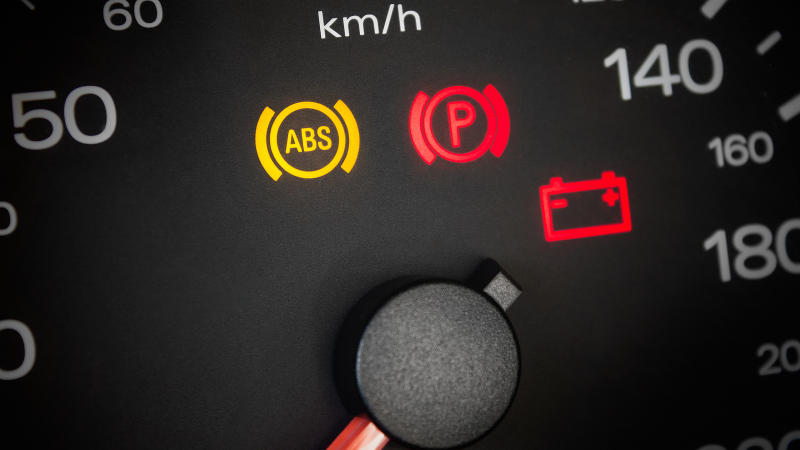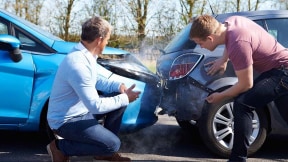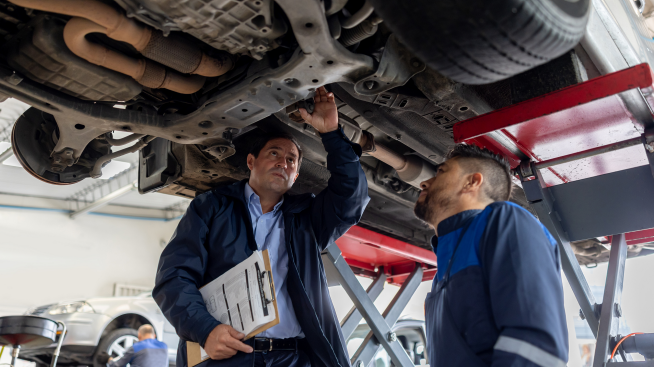What is the ABS light?

Have you ever been on a drive and noticed the light on your dashboard marked "ABS?" ABS stands for "anti-lock braking system," which helps a vehicle brake more safely and effectively in certain situations. The ABS light on your dash is an indicator that this vital braking system may require some maintenance. Let's learn a little more.
How ABS works
Anti-lock braking systems were designed to help prevent your car's brakes from locking up during challenging braking conditions and sudden stops, which could otherwise lead to potentially uncontrollable skidding.
ABS brakes use a system of sensors at each wheel to detect if a wheel is locking up. These sensors send signals to an ABS module, which then regulates the brake pressure at whichever wheels are locking up to allow them to keep rolling. Essentially, the ABS module "pulses" the brakes so that the driver still has some steering available to them as they brake. More modern versions are additionally connected to stability and traction control systems, which can strategically apply the brakes to prevent the car from spinning out.
What does the ABS light mean?
Your ABS light is an indicator that there may be something wrong with your car's anti-lock brakes that requires maintenance. During regular functioning and usage, this light should not come on even when the ABS is actively engaged. If it does turn on, this may be for several reasons, including:
- Self-checkup: If the light turns on at startup and then immediately turns off, this is just the system performing a routine check on itself.
- Malfunctioning sensors: If the ABS sensors or the module itself is experiencing any sort of malfunction, it typically will cause the ABS light to turn and stay on.
- Loose or damaged wiring: It's possible for the ABS light to come on even if the sensors and module are both fine, but the wiring connecting them has become loose or damaged.
- Issues with wheel bearings: A damaged or improperly installed wheel bearing could cause excessive wobbling in the wheel, which could potentially cause one of the ABS sensors to have inconsistent contact with the wheel. This would cause the module to receive faulty or incomplete data, triggering the ABS light.
- External electrical issues: Since your ABS module and sensors are hooked up to your car's larger electrical system, underlying issues with the latter could cause your ABS light to come on.
What to do when the ABS light comes on
As illustrated above, the ABS light turning on can be indicative of many potential issues with your brakes. Since some of the issues indicated by an ABS light could be quite serious, and because braking is such a crucial part of driver safety, it's best not to delay bringing your car in for a check-up with a trusted mechanic.
Note that your car has a brake light as well as an ABS light. If the ABS light is on but the brake light isn't, the car should be safe enough to drive carefully to the nearest auto shop for repairs. If the brake light is also on simultaneously, however, it could indicate a much more serious problem. In this case, it's generally safer to have the car towed to the shop right away rather than attempt to drive it yourself. If you're in any doubt, consider calling your mechanic for advice.
In summary
Hopefully, you can now see just how important your anti-lock braking system can be to a safe driving experience. Staying vigilant about indicators of potential problems with this system, such as your ABS light turning on, can help ensure you catch and repair minor issues before they potentially become major hazards.



